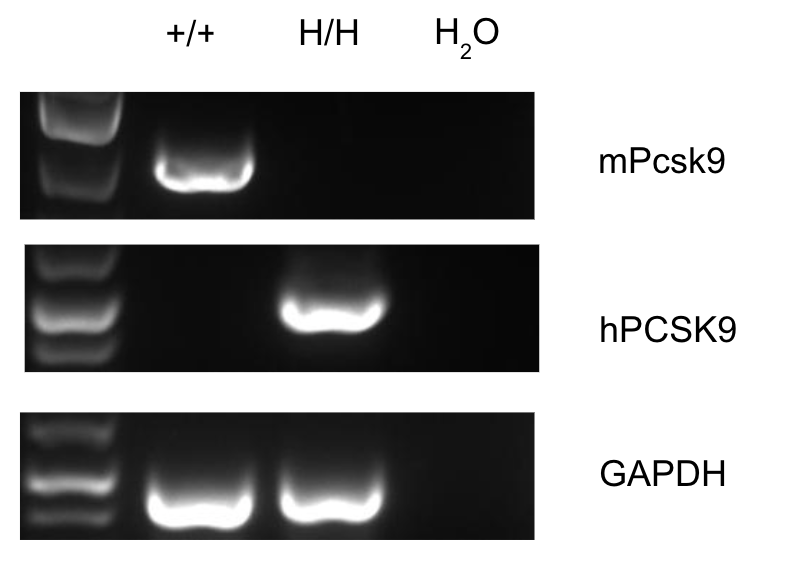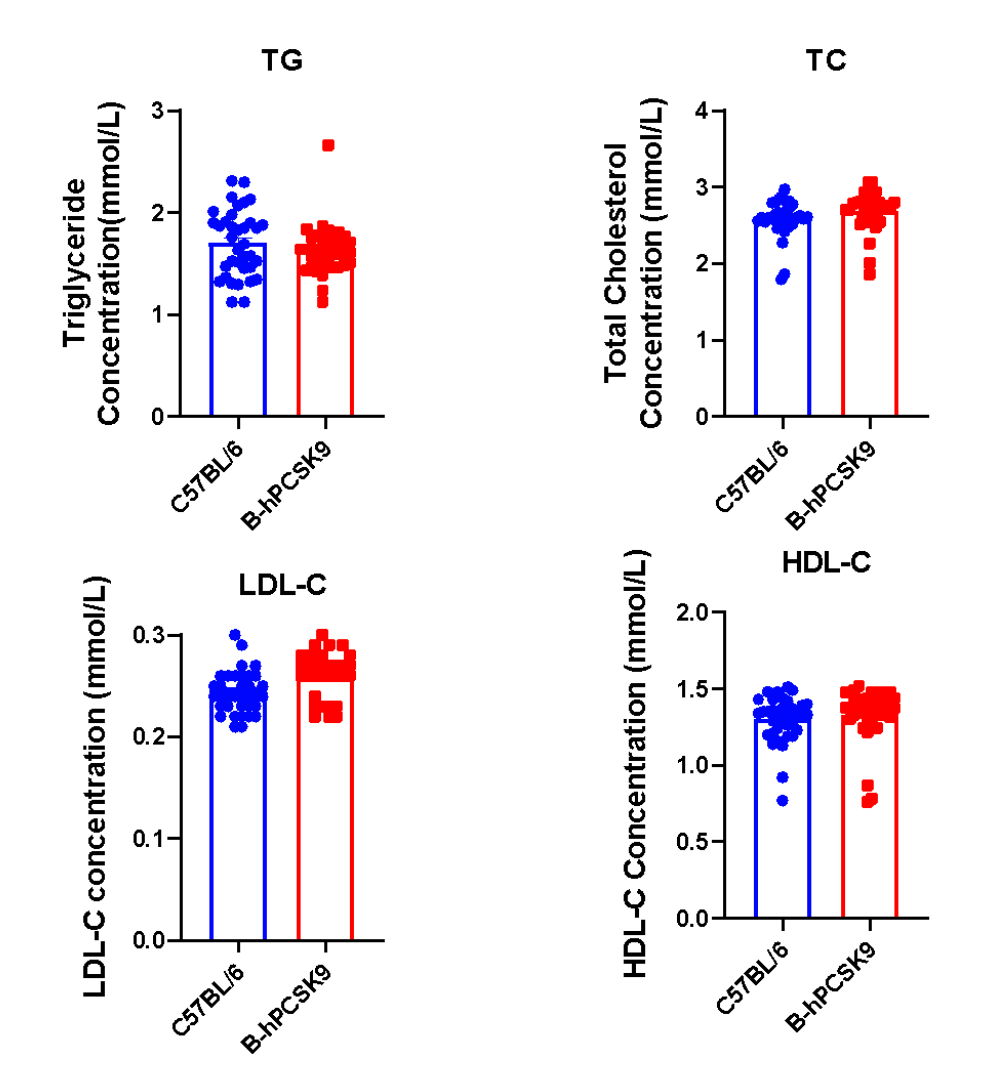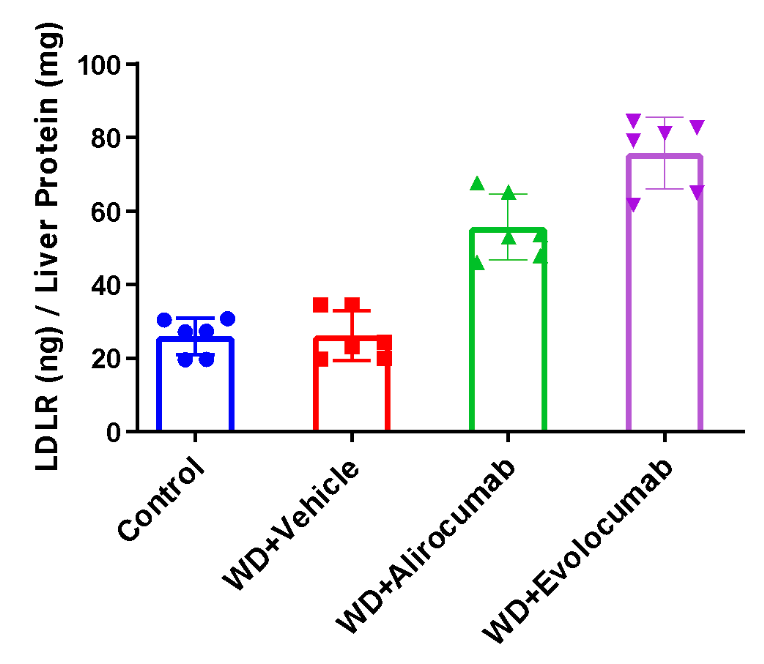Basic Information
-
Gene Targeting Strategy

-
The exons 1-12 of mouse Pcsk9 gene that encode the full-length protein were replaced by human PCSK9 exons 1-12 in B-hPCSK9 mice.
-
mRNA Expression Analysis

-

Strain specific analysis of PCSK9 gene expression in wild-type mice and B-hPCSK9 mice by RT-PCR. Mouse Pcsk9 mRNA was detectable in liver of wild-type mice (+/+). Human PCSK9 mRNA was detectable only in homozygous B-hPCSK9 but not in wild-type mice.
-
Protein Expression Analysis

-

Strain specific PCSK9 expression analysis in homozygous B-hPCSK9 mice by ELISA. Serum was collected from wild-type mice (+/+) and homozygous B-hPCSK9 mice (H/H), and analyzed by ELISA with species-specific PCSK9 ELISA kit. Mouse PCSK9 was detectable in wild-type mice. Human PCSK9 was exclusively detectable in homozygous B-hPCSK9 mice but not in wild-type mice.
-
Analysis of lipid metabolism after PCSK9 humanization in B-hPCSK9 mice

-

Lipid metabolism analysis in B-hPCSK9 mice.
Plasma concentrations of TG, TC, LDL-C, and HDL-C in B-hPCSK9 mice and wild-type C57BL/6 mice (n = 36, 6 weeks) were analyzed. There is no difference between B-hPCSK9 mice and wild-type C57BL/6 mice.
TG, triglycerides; TC, total cholesterol; HDL-C, high-density lipoprotein cholesterol; LDL-C, low-density lipoprotein cholesterol.
-
In vivo efficacy of anti-human PCSK9 antibody with WD-induced B-hPCSK9 mice

-

Anti-human PCSK9 antibody improved lipid metabolism in male B-hPCSK9 mice.
B-hPCSK9 mice were treated with Alirocumab (in house)/Evolocumab(in house) or isotype control antibody(single dose, s.c.) (n = 8). Blood were collected on Day -5, 1, 3, 5 and 8 for analysis. Serum levels of LDL-C (A) and TC(B) were reduced in the anti-human PCSK9 antibody treated male mice group compared to the isotype control. Results indicated that anti-human PCSK9 antibody were efficacious in controlling blood lipid in male B-hPCSK9 mice. Values are expressed as mean ± SEM. TC, total cholesterol; LDL-C, low density lipoprotein cholesterol. WD, the Western diet.

Anti-human PCSK9 antibody upregulated LDLR levels in male B-hPCSK9 mice.
B-hPCSK9 mice were treated with Alirocumab (in house)/Evolocumab(in house) or isotype control antibody(single dose, s.c.) (n = 6). Liver tissues were collected on Day 8 for ELISA analysis. LDLR levels were upregulated in the anti-human PCSK9 antibody-treated male mice group compared to the isotype control. Values are expressed as mean ± SEM. LDLR, low-density lipoprotein cholesterol receptor. WD, the Western diet.
-
Summary

-
- mRNA expression analysis:
Human PCSK9 mRNA was detectable only in homozygous B-hPCSK9 but not in wild-type mice.
- Protein expression analysis:
Human PCSK9 was exclusively detectable in homozygous B-hPCSK9 mice but not in wild-type mice.
- There is no difference in plasma concentrations of TG, TC, LDL-C, and HDL-C between B-hPCSK9 mice and wild-type C57BL/6 mice.
- Anti-human PCSK9 antibody were efficacious in controlling blood lipid in male B-hPCSK9 mice.


